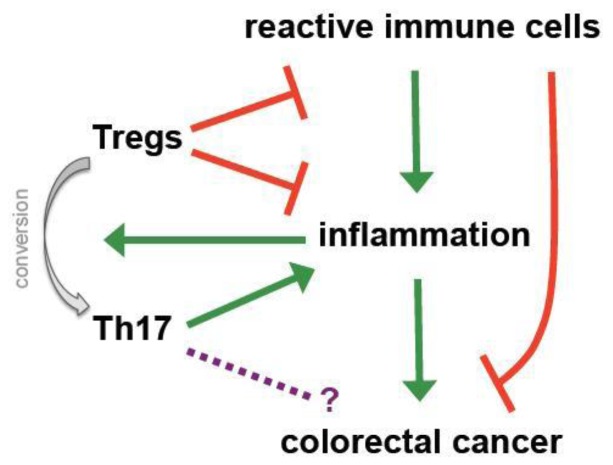Figure 2.
Regulatory T cells in colorectal cancer—friends and foes. The role of regulatory T cells (Tregs) in colorectal cancer is very complex and ambiguous. Chronic inflammation is strongly associated with intestinal carcinogenesis. Tregs efficiently control inflammatory processes and thereby are capable of preventing tumor development by maintaining and restoring intestinal homeostasis. However, under strong inflammatory stimuli they can convert into pro-inflammatory IL-17 producing cells (Th17) cells, which have been linked to cancer initiation. At the same time immunosuppressive Tregs not only contain the inflammatory activity of activated immune cells, but also may hamper their efficient tumor directed response. Taken together these observations suggest a very fine balance between pro- and anti-tumor activities of Tregs in CRC that strongly depend on the examined phase (early versus late) of tumorigenesis.

